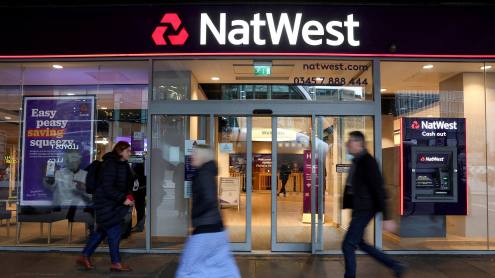Westpac’s initial offer was A$15bn, for an all-equity deal, which was revised to A$18.6bn.
The deal would create the largest wealth platform provider in the country with funds under administration of A$108bn, and the leading provider of home lending with a 25% market share.
The revised conditions do not include a ‘break’ fee of A$150m, which Westpac initially requested and which would have deterred competitive offers. And while St George has agreed to ‘no shop’ and ‘no talk’ restrictions, subject to the directors’ fiduciary duties, the two banks only have a two-week exclusivity period in which to conduct due diligence on each other, which might indicate St George’s strong negotiating position.
St George has indicated that it will recommend the Westpac scrip offer, subject to no superior proposal emerging and an independent expert concluding that the proposal is in the best interests of its shareholders. Westpac’s proposal is not subject to a right to match any superior offer that a rival bidder may make.
Australia’s banking system has come under pressure from a rise in overseas funding costs caused by the global credit market troubles and tighter interest rates at home, in addition to an increase in the number of delinquent borrowers in the country.
So far, the Australian government has refused to allow any of the country’s four largest lenders to merge. St George, a former building society, ranks fifth with a market capitalisation of A$14.95bn. It also ranks fifth by Tier 1 capital, with a value of A$9.96bn.
Westpac said in a statement that the respective brands would be better able to compete if they belonged to the same larger, stronger group. Westpac’s chief executive, Gail Kelly, was chief executive of St George until earlier this year.
The country’s largest bank, National Australia Bank, has said it would consider acquisitions to expand in wealth management. It declined to comment but did not rule out a possible takeover of Citigroup’s Australian wealth management business.
Infrastructure funds boost
A number of banks have launched or beefed up infrastructure funds. Goldman Sachs is raising funds for its second infrastructure fund, GS Infrastructure Partners II, which reportedly aims at $7.5bn of capital commitments. Its debut fund raised $6.5bn in 2006. Morgan Stanley has raised $4bn for its infrastructure fund, investing $400m of its own resources. Global Infrastructure Partners, a private equity firm backed by Credit Suisse and General Electric, has announced it has raised $5.6bn for a fund to invest in infrastructure projects worldwide. HSBC Infrastructure Company has announced plans to strengthen its balance sheet by raising £145m ($287m) in a share sale. The fund invests in public-private partnerships and private finance initiative deals.
Crédit Agricole has confirmed that it was considering launching a €5.9bn capital increase to compensate for mounting subprime losses at Calyon, its investment bank, which have affected its first-quarter results.
Barclays has said it was keeping all options open regarding bolstering its capital ratios as it reported first-quarter results without launching a rights issue or announcing other measures to raise capital. The bank has made public a further £1.7bn of writedowns on its exposure to subprime mortgages, monoline insurers and other assets.
Bank of Nova Scotia announced its purchase of Intesa Sanpaolo’s shares in Scotiabank Peru, which would increase its share from 78% to 98%. Scotiabank Peru, the third largest bank in Peru, was formed by the combination of Banco Wiese Sudameris and Banco Sudamericano, following their acquisition by Scotiabank.
Citigroup has announced plans to shed $400bn of assets in the next three years and boost revenues by 10% in an effort to restore profitability following losses linked to deteriorating mortgage and credit markets.
The European Bank for Reconstruction and Development has announced it is considering extending its activities to Turkey, which would mean it operating outside the former communist countries for the first time.
IFC aids Thai debt market
The International Finance Corporation (IFC) has announced that it will buy a 5% stake in ACAP Advisory, a Thai financial advisory, to help develop a market for distressed debt in east Asia. The IFC’s investment is aimed at supporting ACAP’s expansion into new markets, particularly those where distressed debt markets are at an early stage. ACAP manages Bt80bn ($2.5bn) worth of non-performing loans.
Merrill Lynch has said regulators had approved the expansion of its Taiwan private banking business, marking the latest effort by a foreign firm to increase its presence in Asia’s third wealth management market.
South Korea has given a preliminary go-ahead to Standard Chartered and a unit of ING to launch local brokerage operations, which would be the first time in five years that new players have been allowed into the fast-growing sector.
Macquarie Group of Australia has set up an equity underwriting division in Japan, attempting to enter a market dominated by Japanese brokerages Nomura and Daiwa Securities.






